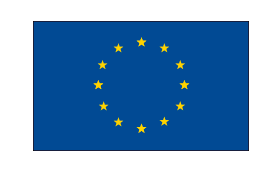What do we mean by the sustainability of EVO – Extra-Virgin Olive Oil?
When we talk about extra-virgin olive oil and its associated production processes, we must take into consideration the concept of sustainability.
Embracing sustainability ensures a balanced and healthy development for today’s society and new generations, using the most appropriate resources without further compromising our ecosystem. We therefore speak of sustainable Extra-Virgin Olive Oil when the product reaches our tables in compliance with a series of environmental, economic and social requirements that ensure respect for natural and human resources.
A sustainable EXTRA-VIRGIN OLIVE oil must involve production processes that ensure protection of the territory, respect for the environment, protection of workers and people involved in the process in full respect of all relevant economic, ethical and social parameters.
For this to happen, it is necessary to maintain a low environmental impact throughout the cultivation, processing and distribution processes; to care for the enhancement of biodiversity and the olive-growing heritage to be preserved for future generations; to respect natural resources such as water and soil; to reduce wastage and manage production waste in a sustainable manner. Furthermore, attention must be paid to economic sustainability, ensuring a fair income for producers and fair remuneration for the workers involved. Also, social sustainability must be addressed, with the intent of improving quality of life, guaranteeing respect for workers’ rights as well as maintaining ties and territorial culture.
But how can we measure these characteristics (some of them qualitative), and how should we build a standardised system of measurement criteria capable of encompassing several parameters? Furthermore, how can compliance with these criteria be verified in businesses, by producers, by material processors and others involved in the chain that takes olives from the field to our table?
Given the number of parameters to be measured and the number of actors involved in the supply chain, it is immediately apparent that determining sustainability requires the establishment of a complex system of measurement and verifiability criteria.
Furthermore, how can the concept of sustainability be conveyed to a consumer who is increasingly attentive to food, its qualities and production processes? It might appear simple, but perhaps not so straightforward if not set in context with the various product features.
Given these assumptions, we can say that there is still no unambiguous and accepted definition of sustainability applied to the Extra-Virgin Olive Oil product and supply chain. But the attention of the public and insiders is intense, and the subject is absolutely current.
Several stakeholders are working on projects and experimenting with the definition of objective criteria for establishing quality requirements. The proposals include:
- guaranteed traceability;
- blockchain technologies;
- awareness-raising campaigns targetting producers and compliance with sustainability criteria;
- consumer information and communication campaigns are just a few examples of this focus.
In the Circular Economy section of the website, you will find information and insights on projects developed by research centres, producers, professional agricultural organisations, and large commercial groups that all share the need to offer consumers an EVO oil that takes sustainability into account in all its expressions.
